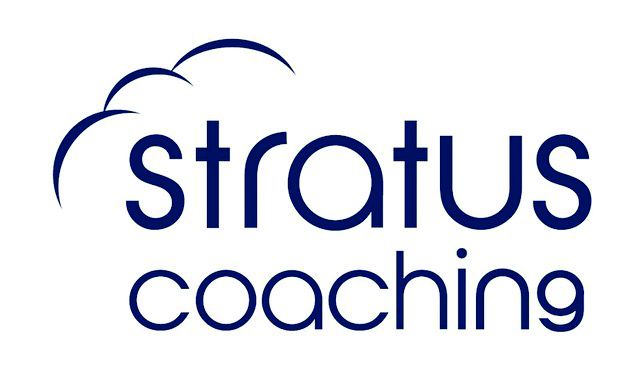Are your teams match fit ready?
13th December 2019When it comes to wellbeing, an ounce of prevention is worth a pound of cure
– Anna Golawski, Founder of Stratus Coaching Ltd: leading provider for mental health and resilience training and coaching.
Mental health and wellbeing at work continues to be one of the most challenging issues that employers face, with statistics showing that one in four of us will experience mental ill health at some point in our lives. And the financial cost to organisations of poor mental health is estimated to be £42bn a year. This rises to nearer £100bn if you include the cost to the NHS.
As well as the financial costs, the adverse business effects of mental ill-health include employee absence, staff turnover, loss of skills, and legal and reputational risks. All of this makes it an issue worth tackling.
In the same way that footballers looks after their physical health in order to perform at their best and win matches, we need to proactively look after our mental health in order to be productive and achieve our full potential at work.
The culture of the organisation has a big part to play in wellbeing at work, with 75% of managers in a Harvard Business Review reporting poor workplace relationships, excessive demands and lack of feedback cited as the biggest contributors to stress levels.
Many organisations know that a healthy workplace culture is going to help productivity and performance, but just relying on symbolic gestures, such as providing a bowl of fruit on a Friday isn’t going to cut it.
The primary role of managers is to manage their resource, their people, to get the best from them. The question that is often asked is “why is this something that employers need to act upon”. This can be addressed from a number of angles.
There is the business case:
- A third of sickness absence across the population as a whole is mental illness related.
- The financial cost of that absence together with the increased burden placed on other staff.
- The staff turnover and related costs and disruption caused by ill staff leaving.
- The costs of occupational health support for those experiencing mental illness.
- The lost engagement and reduced productivity and wider impact of people who are still at work but are nonetheless experiencing mental illness. So called presenteeism is a significant, but often overlooked, cost.
Anecdotal evidence suggests that employers who invest in mental wellbeing see a return on investment, in terms of reduced costs, of many times the initial outlay. There are also less visible benefits in terms of staff morale, engagement and the like.
There is a legal case as well of course. Employers owe a duty of care to their employees. This applies as much to mental illness caused, or exacerbated, by the work place as it does to industrial injury. Mental illness may also be a disability under the Equality Act 2010. Where it is, you must not discriminate against someone because of it and you need to make reasonable adjustments to accommodate them in the workplace.
Equally important is the moral case; employers need to ensure they promote healthy workplaces where people feel comfortable speaking to someone if they are struggling. One of the ways this can be done is through Wellness Action Plans which provide a useful framework for discussing stress and anxiety at work, management skills training and having qualified Mental Health First Aiders in the workplace. Mental health first aid training is approaching parity to physical first aider training in that it equips those with the knowledge, tools and confidence to recognise warning signs and offer suitable support when someone is experiencing mental health issues. It is not intended to be diagnostic or solve problems, rather it enables them to listen, reassure and respond.
Other cultural factors to consider are:
- Mental Health Policy – is this accessible to staff and managers? Does it clearly signpost people to internal and external resources available?
- Culture of Openness – how often are people asked how they are feeling, not just an update on what they are doing?
- Regular breaks – are employees encouraged and allowed to take regular breaks during the day to restore their mental energies?
- Email policy – are people expected to be on call 24/7? Footballers value their rest days as much as training days, we need to recharge our minds too.
- Banter – is this effective and appropriate in building enjoyable workplaces or exclude/offend people (and become a source of stress)?
- Clear objectives & guidance – when people know what’s expected of them, they can better perform to their full potential and use constructive feedback for future success.
- Coaching/mentoring – reflecting on progress and sharing insights pays huge dividends.
Stratus Coaching Ltd are proud supporters of AITC. We regularly hold breakfast seminars on the topic of mental health and wellbeing at work with all proceeds going to the charity. In 2020 we will be further strengthening the partnership through gifting places on MHFA courses and providing training sessions to the charity and its partners that it works with in the community.
The Health and Safety Executive (HSE) website has lots of information and guides for employees and managers, or contact Anna Golawski for further advice and information or details of open courses in Sussex.
Client testimonials to include:
Anna was a fantastic presenter. She delivered the content extremely well, kept everything on track whilst allowing time for exploring certain aspects further in response to questions etc.
Anna was very supportive and encouraging and very knowledgeable in this sensitive area.
I thought the course was delivered effectively and sympathetically by Anna which allowed for an open and trusting learning environment.
Visit the website.


